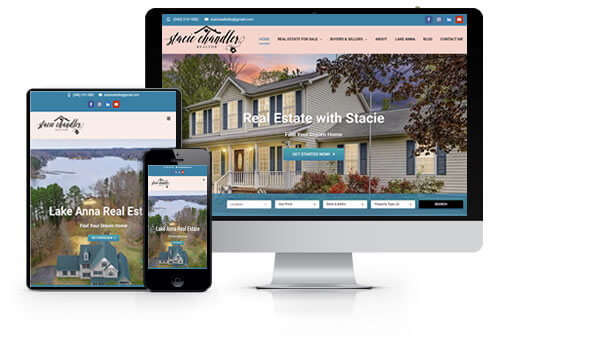Real Estate Web Design Services
Real Estate Web Design and Development
Dominate your local market with our search engine friendly web designs!
To be a successful realtor you need a website that can be easily found and generate leads for you. Today more and more consumers are relying on the internet to buy or sell products including real estate. Most website traffic comes from search engines like Google®, Yahoo!® and MSN®. If you cannot be found, you are left behind. Promote your business online, increase your online visibility and make money!
NetQwik works with you to create user-friendly web designs that adhere to search engines best practices. Real estate web design for real estate agents and brokerage firms is our niche. We design, host and manage your site and submit your site to search engines.
Website Maintenance
We provide web maintenance to keep your website fresh to encourage returning visitors. Every Real Estate Website is unique and comes with a FREE blog! We can also help you set up IDX for website.
CONTACT US
Our Process for Real Estate Firm Website Design and Marketing
The web site design and development process is simple. It involves gathering initial information, creation of your web site, maintenance to keep your web site up to date and current and marketing your business. It all starts with a phone call. Call us now at 800-657-5432 and we will walk you through the process.
We design websites for both Residential and Commercial Realtors


Initial Concept Planning
We gather information about your company, your goal and target audience.
Draft & Revisions
We give you a draft design and revise the design till you absolutely love it.
Final Delivery
Once you are satisfied with the design we develop all the web pages. When you approve the site we launch it.
Marketing & Maintenance
We work with your team to plan a customized marketing strategy.
Essential for a real estate web design
- User-Friendly Navigation: Ensure that your website is easy to navigate. Use clear menu options and a logical layout that helps users find what they’re looking for quickly.
- Property Listings: Your website should prominently display property listings. Include high-quality photos, detailed property descriptions, key features, pricing, and contact information. Provide search filters to allow users to narrow down their options based on criteria like location, price, property type, and more.
- Responsive Design: Make sure your website is optimized for various devices and screen sizes, including desktops, tablets, and smartphones. Responsive design enhances the user experience and ensures your website looks good on all devices.
- Search Functionality: Implement an advanced search feature that allows users to search for properties based on specific criteria. This could include location, property type, price range, number of bedrooms, and more.
- Map Integration: Incorporate a map feature that shows the location of each property listing. This helps users understand the property’s proximity to important places like schools, parks, and shopping centers.
- Virtual Tours and Videos: Including virtual tours or videos of the properties can give potential buyers a better sense of the layout and features of the properties.
- Contact Information: Make it easy for users to contact you or the real estate agents. Include clear and visible contact information, such as phone numbers, email addresses, and contact forms.
- Agent Profiles: If you have multiple real estate agents working with you, provide dedicated pages for each agent. Include their photos, biographies, contact information, and a list of properties they’re representing.
- Testimonials and Reviews: Displaying client testimonials and reviews can help build trust and credibility with potential clients.
- Blog and Resources: Include a blog section with informative articles related to real estate, home buying tips, market trends, and more. This can position you as an expert in the field and attract organic traffic to your website.
- Mortgage Calculator: Integrating a mortgage calculator can help potential buyers estimate their monthly payments, making the decision-making process easier.
- Clear Calls to Action (CTAs): Use clear and compelling CTAs throughout your website to guide users towards desired actions, such as contacting you, scheduling property tours, or signing up for email alerts.
- Social Media Integration: Include links to your social media profiles to expand your online presence and allow users to connect with you through different channels.
- IDX Integration: If applicable, integrate an IDX (Internet Data Exchange) solution to display listings from your local multiple listing service (MLS) directly on your website.
- Security and Privacy: Ensure that your website is secure and complies with privacy regulations. This is particularly important when handling sensitive information from users.
- Loading Speed: Optimize your website’s loading speed to prevent user frustration and improve overall user experience.
Remember that your real estate website is a representation of your brand, so it’s important to design it professionally and keep it updated regularly. Regularly update property listings, blog content, and other relevant information to provide value to your visitors.

